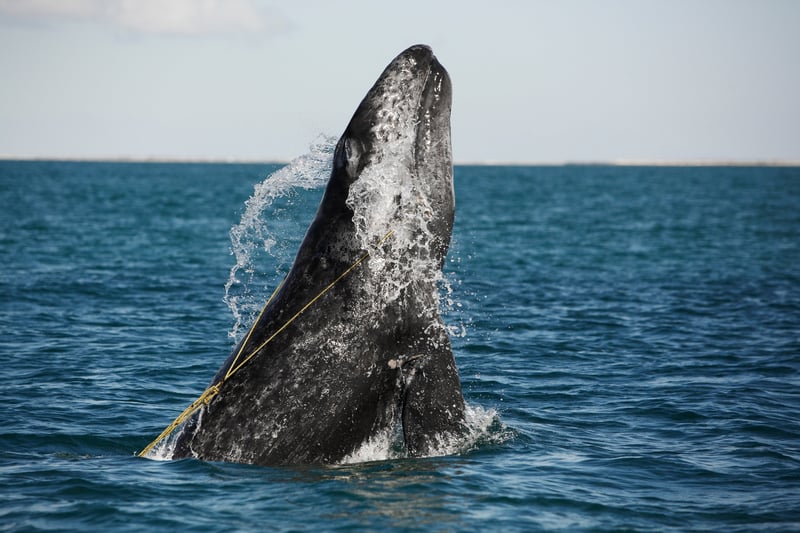
Open for consultation: guidance to reduce marine litter and protect animals
News
Lost or abandoned fishing gear, or ‘ghost gear’, kills hundreds of thousands of marine animals annually. The Global Ghost Gear Initiative (GGGI) invites the public and industry to feed back on its new guidance to protect animals from this most harmful form of marine litter
The Global Ghost Gear Initiative recently developed the Best Practice Framework for the Management of Fishing Gear (BPF).
The BPF is a set of guidelines specifically tailored to the seafood industry, empowering fishers, seafood companies, retailers, gear manufacturers, policy makers and others, to address practically, the issue of lost and abandoned fishing gear.
More than 40 GGGI participants from across the industry helped develop the BPF. It is the first framework of its kind to provide practical advice to help reduce fishing gear loss and mitigate its impact if it is lost.
Feasibility key for success
We established the GGGI in 2015, it is the first initiative dedicated to tackling the problem of ghost fishing gear at a global scale.
We’re pleased to now offer seafood industry stakeholders an opportunity to give input into a framework of this scale and detail.
Our goal is to make these guidelines as feasible and practical as possible. We want to hear from key industry stakeholders, who we hope will soon adopt the BPF as part of sustainable sourcing policies.
When implemented, the framework will help stop fishing gear becoming ocean waste, and prevent the injury and death of entangled marine wildlife. It will also help end additional expense and hazards for fishermen and marine communities, currently posed by lost gear. When nets are lost, they need to be replaced, incurring additional cost. Lost gear can also get caught in active equipment and damage it, as well as becoming entangled in boat propellers.
A warm reception for sea change
The benefits the Best Practice Framework can offer have already been recognised.
Guy Dean, vice president at Albion Fisheries Ltd. - a GGGI partner - said: “This is a big step towards implementing more sustainable fishing practices globally.
“Ghost gear is a very real impediment to sustainable seafood. Until now, a comprehensive approach to combatting ghost gear with recommendations for all fishery stakeholders was lacking. The best practice framework provides just that. We’re now looking for feedback on the framework so we can adopt elements of these best practices into our business activities.”
No stone unturned
No stone is left unturned. Whether you are a gear manufacturer, fisher, port operator, NGO or seafood business, the framework provides guidance for good management practices including:
- vessel storage
- gear deployment
- the proper disposal for ‘end-of-life gear’.
The guidance in the framework is based on the strongest available evidence and a series of best-practice case studies underway in different parts of the globe.
All parts of the seafood supply chain have a role to play to lessen the amount of lost gear and its detrimental impact on fish stocks, the marine ecosystem and marine animals that can become entangled.
How to feed back
You can feed back on the Best Practice Framework for the Management of Fishing Gear via a quick and easy online survey.
We will also soon offer a chance to provide verbal feedback through a series of webinars.
“This is a big step towards implementing more sustainable fishing practices globally - Guy Dean, vice president at Albion Fisheries Ltd.